#Missagh Zareh
Explore tagged Tumblr posts
Text

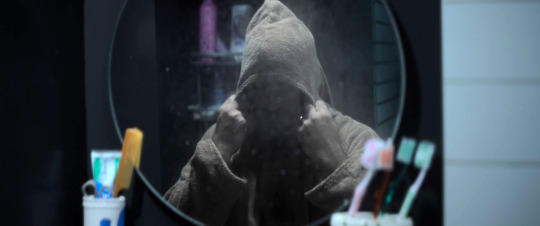
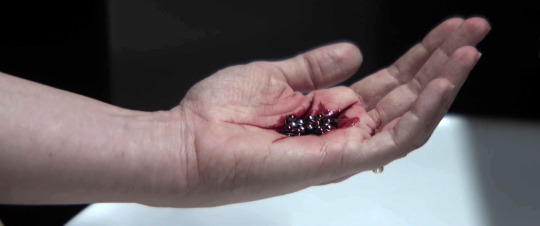
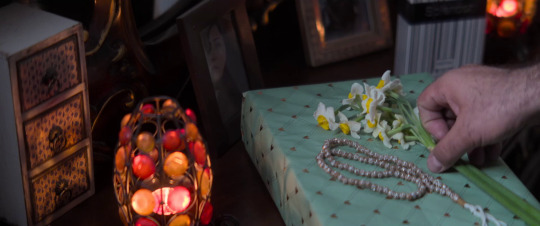

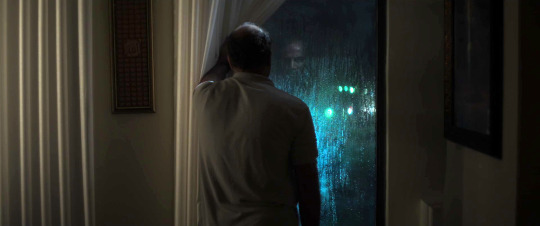
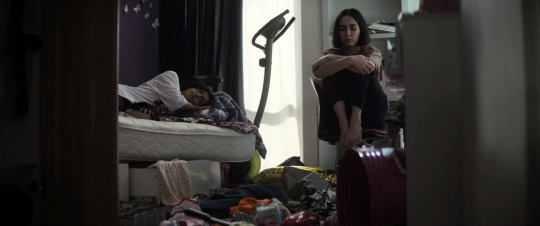
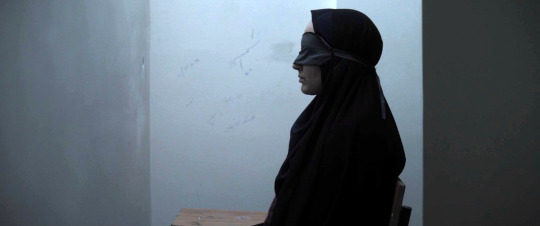
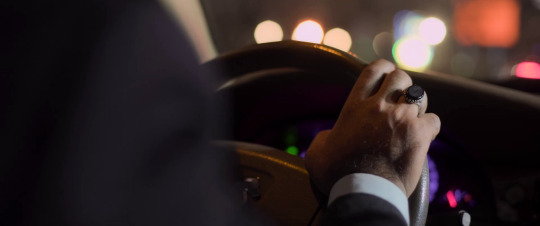
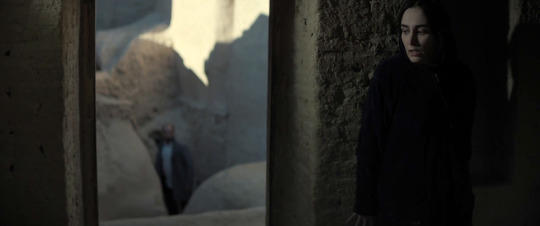
The Seed of the Sacred Fig (2024) | dir. Mohammad Rasoulof
#the seed of the sacred fig#les graines du figuier sauvage#die saat des heiligen feigenbaums#mohammad rasoulof#soheila golestani#missagh zareh#mahsa rostami#setareh maleki#films#movies#cinematography#screencaps
123 notes
·
View notes
Text
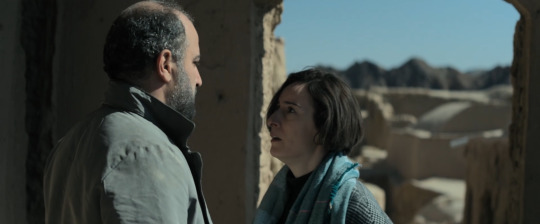
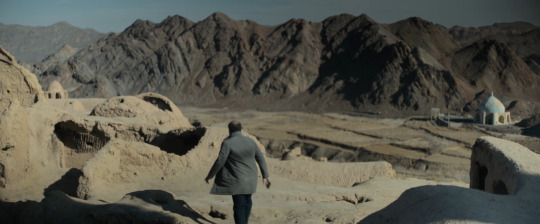
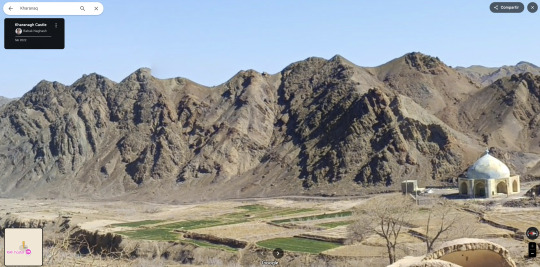

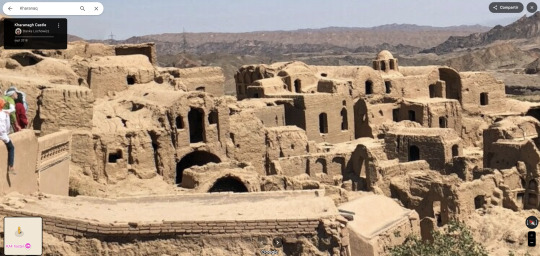
دانهی انجیر معابد / The Seed of the Sacred Fig Mohammad Rasoulof. 2024
Ruins Kharanaq Castle, Kharanaq, Yazd Province, Irán See in map
See in imdb
#mohammad rasoulof#دانهی انجیر معابد#the seed of the sacred fig#iran#kharanaq#ruins#soheila golestani#missagh zareh#setareh maleki#mahsa rostami#movie#cinema#film#location#google maps#street view#2024
41 notes
·
View notes
Text

The Seed of the Sacred Fig
directed by Mohammad Rasoulof, 2024
#The Seed of the Sacred Fig#Mohammad Rasoulof#movie mosaics#Missagh Zareh#Setareh Maleki#Mahsa Rostami#Niousha Akhshi#Soheila Golestani#Reza Akhlaghirad
10 notes
·
View notes
Text

"A Semente do Fruto Sagrado" (Dâne-ye anjîr-e ma'âbed) - cinema.
Filme iraniano, agora concorrente ao Oscar de filme estrangeiro, mas quando fui ainda não era. A história é que o diretor Mohammad. A trama é contra o regime ditatorial iraniano e acontece no meio dos protestos contra a morte de uma garota por não usar o véu da forma correta em 2022. O diretor foi preso, liberado e terminou o filme na Alemanha.
depois de ver: é um filme forte. e quase todo dentro de salas e quartos, já que foi feito em segredo. a parte final, cheia de correria atrapalha, mas não diminui a mensagem do filme.
#A Semente do Fruto Sagrado#cinema#Dâne-ye anjîr-e ma'âbed#The Seed of the Sacred Fig#Mohammad Rasoulof#Soheila Golestani#Missagh Zareh#Setareh Maleki#Mahsa Rostami#2024
5 notes
·
View notes
Text
Film Recommendation: The Seed of the Sacred Fig (2024) Written and Directed by Mohammad Rasoulof Starring Soheila Golestani, Missagh Zareh, Mahsa Rostami, Setareh Maleki, Niousha Akhshi


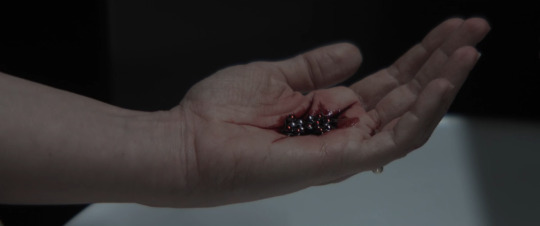


"Ficus Religiosa is a tree with an unusual life cycle. Its seeds, contained in bird droppings, fall on other trees. Aerial roots spring up and grow down to the floor. Then, the branches wrap around the host tree and strangle it. Finally, the sacred fig stands on its own."
#the seed of the sacred fig#2024#movie#mohammad rasoulof#soheila golestani#missagh zareh#mahsa rostami#setareh maleki#niousha akhshi#film recommendation#film quote#world cinema#my heart's still hammering
2 notes
·
View notes
Text

Iranian actor Missagh Zareh (born 1981) who is currently in the public eye across the world for his leading role in the film that is set in Iran, 'The Seed of the Sacred Fig'. I have seen the film and I can say that it as among the best thrillers that will be made all this year.
3 notes
·
View notes
Text
The Seed of the Sacred Fig

The Seed of the Sacred Fig [trailer]
Investigating judge Iman grapples with paranoia amid political unrest in Tehran. When his gun vanishes, he suspects his wife and daughters, imposing draconian measures that strain family ties as societal rules crumble.
The paranoia and fear that easily spreads when living under an oppressive regime.
The use of real phone recordings from protests in Iran provides context and shows this is not a mere theoretical piece of fiction.
Director Mohammad Rasoulof has numerously been arrested and sentenced in Iran and now has fled the country. You can say he knows the local justice system well.
#The Seed of the Sacred Fig#Dane-ye anjir-e ma'abed#Mohammad Rasoulof#Mahsa Rostami#Setareh Maleki#Missagh Zareh#Soheila Golestani#Reza Akhlaghirad#Mahsa Amini#Niousha Akhshi#foreign#Iran#recommended
1 note
·
View note
Text
The Seed of the Sacred Fig (15): High Drama for a Family Caught on the Wrong Side of a Revolution.
One Mann's Movies Film Review of "The Seed of the Sacred Fig". A tense and brilliantly produced Iranian political thriller. 4.5/5.
A One Mann’s Movies review of “The Seed of the Sacred Fig” (2024). Original title: Dâne-ye anjîr-e ma’âbed A caption at the start of the film discloses that this film was made in secret. And you can see why. The Iranian authorities have not reacted well to it, sentencing the director Mohammad Rasoulof to 8 years in prison (he had to flee the country). They also promised retribution on the cast…
#bob-the-movie-man#bobthemovieman#Cinema#Fernanda Torres#Film#film review#Iran#Mahsa Amini#Mahsa Rostami#Missagh Zareh#Mohammad Rasoulof#Movie#Movie Review#One Man&039;s Movies#One Mann&039;s Movies#onemannsmovies#onemansmovies#Pooyan Aghababaei#Review#Reza Akhlaghirad#Setareh Maleki#Soheila Golestani#The Seed of the Sacred Fig
1 note
·
View note
Text
THE SEED OF THE SACRED FIG:
Father promoted
Descends to paranoia
When gun goes missing
youtube
#the seed of the sacred fig#random richards#poem#haiku#poetry#haiku poem#poets on tumblr#haiku poetry#haiku form#poetic#soheila golestani#missagh zareh#setareh maleki#mahsa rostami#reza akhlaghirad#niousha akhshi#mohammad rasoulof#academy award nominee#best international feature film#Youtube
0 notes
Text
Watched Seed of the Sacred Fig

Shatteringly familiar. The toxic seeds of political violence are spread so far. The oppressive force must be buried in history, through tremendous labor on the part of its victims. Solidarity forever.
#movie review#movies#mohammad rasoulof#the seed of the sacred fig#cannes film festival#soheila golestani#missagh zareh#mahsa rostami#setareh maleki#iran
0 notes
Text
Die Saat des heiligen Feigenbaums (Iran, 2024)
Schon bei der Viennale hatte ich versucht, Karten für diesen hochgelobten Film zu bekommen. Sie waren nach wenigen Minuten ausverkauft. Viele hatten von den gefährlichen Umständen der Entstehung des Films bereits bei den Filmfestspielen in Cannes erfahren, denn er wurde heimlich und unter gefährlichen Umständen im Iran gedreht. Der Regisseur konnte sich nur durch eine Flucht vor einer…
youtube
View On WordPress
#Die Saat des heiligen Feigenbaums#Filmkritik#Iran 2024#Mahershala Ali#Mahsa Rostami#Missagh Zareh#Mohammad Rasulof#Setareh Maleki#Soheila Golestani#Youtube
0 notes
Text
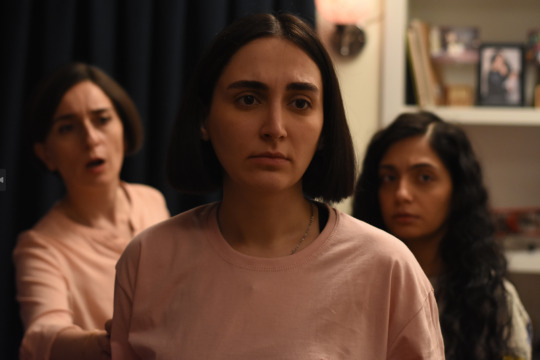
The Seed of the Sacred Fig (Danaye anjir-e moabad), Mohammad Rasoulof (2024)
#Mohammad Rasoulof#Mahsa Rostami#Setareh Maleki#Niousha Akhshi#Missagh Zareh#Soheila Golestani#Reza Akhlaghirad#Shiva Ordooie#Pooyan Aghababaei#Karzan Mahmood#Andrew Bird#2024
1 note
·
View note
Text
TIFF '24: 'The Seed of the Sacred Fig' Review
#TIFF24 The Seed of the Sacred Fig Review: "Once Rasoulof shifts to the more intimate familial issues, it becomes tension-filled & fast-paced to mirror the rising distress within the family. He layered these traditional values to build an impactful end."
By: Amanda Guarragi Motion pictures can shape our perception of the world. International films help give perspective to different socio-political and religious views not normally shown in Westernized media. Exposure to other countries helps shape our worldview and is vitally important to create compassion and empathy. At the same time, these films have universal themes that can affect…
#blogger#Cinema#Entertainment#Film Critic#Film Reviews#Films#Mahsa Rostami#Missagh Zareh#Mohammad Rasoulof#movie reviews#Movies#neon#Reviews#Setereh Maleki#Soheila Golestani#The Seed of the Sacred Fig#TIFF 24#Writer
0 notes
Text
SUPPORTING ACTOR
Shortlisted: Yura Borisov, Anora / Elias Koteas, Janet Planet / Denzel Washington, Gladiator II / Missagh Zareh, The Seed of the Sacred Fig / David Webber, Hard Truths / Qu Chuxiao, The Breaking Ice / Ed Harris, Love Lies Bleeding
THE NOMINEES ARE:

NICOLAS CAGE, LONGLEGS
as "Longlegs"

MARK EYDELSHTEYN, ANORA
as "Ivan"

OLIVIER RABOURDIN, LAST SUMMER
as "Pierre"

DAN STEVENS, CUCKOO
as "Herr König"
AND THE CRISTAL GOES TO...

GUY PEARCE, THE BRUTALIST
as "Harrison Lee Van Buren Sr."
#2024 Film#Best Supporting Actor#Guy Pearce#The Brutalist#Nicolas Cage#Longlegs#Mark Eydelshteyn#Anora#Olivier Rabourdin#Last Summer#Dan Stevens#Cuckoo
8 notes
·
View notes
Text
https://www.nytimes.com/2024/11/27/movies/the-seed-of-the-sacred-fig-review.html
The ubiquity of smartphones capable of filming anything, anywhere, has been a blessing and a curse to autocratic governments. On the one hand, protests and nascent revolutions can be filmed and broadcast, seen around the world, making the authoritarian’s attempt to quash dissent much more onerous.
But there’s a shadow side. Autocrats can compel obedience by means of overt force, but it’s much more canny — and more insidious — to turn everyone into individual agents of surveillance. Thinking your office might be wiretapped is bad enough, but knowing whatever you do might be filmed by your snitch neighbor, or sibling, is a powerful motivator to fall into line even in the private sphere. And those phones? They’re perfect little monitoring machines.
This possibility is a basic fact of 21st-century life, and Mohammad Rasoulof makes powerful use of it in his drama “The Seed of the Sacred Fig.” Titles before the film begins announce that it was made in secret, because “when there is no way, a way must be made.” In the past, Rasoulof’s films have resulted in travel bans and prison sentences in his native country of Iran, where he’s run afoul of strict censorship laws. When “The Seed of the Sacred Fig” was announced as a selection at this year’s Cannes Film Festival, the Iranian government interrogated the cast and crew, subjecting them to travel bans. On May 8, less than a week before the start of the festival, Rasoulof was sentenced to flogging and eight years in prison. He and several of the film’s crew fled their country for Europe, and he remains in exile.
It’s not hard to see why the film seemed so dangerous. It puts a frame around inconvenient truths. The main drama concerns a family of four: Iman (Missagh Zareh), his wife, Najmeh (Soheila Golestani), and their two daughters, 21-year-old Rezvan (Mahsa Rostami) and her teenage sister, Sana (Setareh Maleki). Iman has recently been made an investigating judge in Tehran’s revolutionary court, a position of prestige, and Najmeh is overjoyed. Iman aspires to do his job justly.
But almost as soon as he arrives, he discovers that among his duties is a morally dubious one: rubber-stamping severe sentences as requested by the regime’s prosecutors, instead of doing the work of investigating them first. He’s also given a gun to protect himself and his family. Torn at first, he tells his wife about what he’s been asked to do. He and Najmeh reason that the country’s laws are God’s laws, and that it is not his moral responsibility to cross the prosecutors’ recommendations. Besides, what they wish for most is safety, stability and prosperity for their family. That is what the state provides.
Their daughters take a different view. They’re observing protests against the government through many windows — the ones in their bedroom, but also the ones into the world their phones provide. Often what they see on state TV conflicts sharply with the evidence of their own eyes. After Rezvan’s friend Sadaf (Niousha Akhshi) is shot in the face during a protest against compulsory hijab wearing, Iman tells his daughters they’re believing lies planted by the enemy. And then, his gun goes missing.
This story unfolds slowly and methodically, mostly contained in the family’s apartment — no wonder, given the film was shot in secret. But the small-scale family drama feels like a model of the full country in miniature. As the members of the family become more suspicious, they turn on one another. Home begins to feel like a prison of its own.
“The Seed of the Sacred Fig” — the title refers to a tree in which the young shoots choke out the older trunk — is a slow burn, sometimes a tad too slow. Occasionally languid, close-cropped shots that seem intended to produce visual poetry go on a bit too long.
But those sequences are a minor distraction, and the rest of the film’s methodical pace, its deliberate unfolding of the family’s growing rifts, feels almost classical, as if we’re watching an old legend fitted to a new age. Each of the main cast ably portrays internal conflict, both in the things they say and the things they don’t.
There’s a clear divide between the public and private realms in their world (each woman wears a hijab outside the house, a visual separation). The film dwells occasionally on the simple moments of home life: cooking dinner, sitting together in the living room, listening to music. So as the family’s phones become key players in the story, it’s clear what kind of intrusion they represent — the outside world entering the contained indoor one, and the possibility of the opposite occurring.
Rasoulof brilliantly takes this a step further. As his characters wrestle increasingly with the turmoil outside their doors, and the implications this might have for the order within, the film cuts away from this drama and takes us to another drama. Suddenly, what we’re seeing is real: vertically shot documentary footage of protests on the streets, presumably captured by citizens. Those protests followed the death of a woman named Mahsa Amini while she was in police custody in Tehran in September 2022. The footage involves authorities cracking down on protesters, brutal beatings and worse.
It’s an extraordinarily brave addition on Rasoulof’s part, and an effective way to break the film’s fourth wall. That’s footage you, too, could have seen on your phone. “The Seed of the Sacred Fig” asks us to enter a family’s story, but also to acknowledge that we are part of it. We’re extras in the background, no matter how far away we are. For Rasoulof, the world he’s created is far from theoretical. The consequences have been, too.
0 notes
Video
youtube
DIE SAAT DES HEILIGEN FEIGENBAUMS | HD Trailer (German)
"Die Saat des heiligen Feigenbaums" (Originaltitel: دانهی انجیر معابد, international bekannt als The Seed of the Sacred Fig) ist ein Spielfilm von Mohammad Rasoulof aus dem Jahr 2024. Das Drama erzählt die Geschichte eines iranischen Ermittlungsrichters, der während der landesweiten politischen Proteste gegen das autoritäre Regime zunehmend von Misstrauen und Paranoia gegenüber seiner eigenen Familie geplagt wird. Die Hauptrollen spielen Missagh Zareh, Soheila Golestani, Mahsa Rostami und Setareh Maleki. Der Film verwebt fiktive Szenen mit realen Aufnahmen der blutig unterdrückten Proteste durch die iranischen Behörden.
Iman (Iman Misagh Zareh) wird zum Untersuchungsrichter am Revolutionsgericht in Teheran befördert, als das Land von einer massiven Protestbewegung erschüttert wird. Der Tod einer jungen Frau wird zum Auslöser der Demonstrationen, die immer intensiver werden und auf zunehmend harte Gegenmaßnahmen des Regimes stoßen. Iman stellt sich auf die Seite des Staates, was nicht nur seine eigene psychische Belastung verstärkt, sondern auch die Harmonie in seiner Familie gefährdet.
Während seine Töchter Rezvan (Mahsa Rostami) und Sana (Setareh Maleki) von den Ereignissen tief bewegt und aufgerüttelt sind, versucht seine Frau Najmeh (Soheila Golestani) verzweifelt, die Familie zusammenzuhalten. Die Situation spitzt sich weiter zu, als Iman feststellt, dass seine Dienstwaffe verschwunden ist, und er beginnt, Verdacht gegen seine eigene Familie zu hegen.
Hintergrund Mohammad Rasoulof erzählt in seinem intensiven Politthriller von den Protesten im Iran im Herbst 2022 und zeichnet ein schonungsloses Bild eines repressiven Regimes. Der Film, unter schwierigen Bedingungen im Iran gedreht, wurde bei den 77. Filmfestspielen von Cannes mit Standing Ovations und mehreren Preisen, darunter der Spezialpreis der Jury, ausgezeichnet.
#youtube#DieSaatDesHeiligenFeigenbaums#Passion of Arts#Dein Fenster zur Filmkunst#TheSeedOfTheSacredFig#MohammadRasoulof#IranianCinema#PoliticalDrama#ProtestFilm#AutoritäresRegime#Film2024#CannesFilmFestival#Oscarbeitrag#IranProteste#Spielfilm#FiktionUndRealität#GoldenerBärGewinner#MissaghZareh#SoheilaGolestani#MahsaRostami#SetarehMaleki#NioushaAkhshi#RezaAkhlaghi#ShivaOrdooei#AminehArani#Politthriller#DramaFilm#IndependentFilm#ArteKoproduktion#RunWayPictures
0 notes